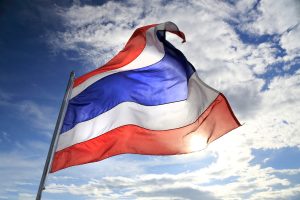Thailand’s Foreign Minister Don Pramudwinai is expected to present a letter of intent to the cabinet soon paving the way for Thailand’s accession to the Comprehensive and Progressive Agreement for Trans-Pacific Partnership (CPTPP). The Thai government has continuously expressed interest in joining the 11-member mega trade bloc, and Thailand’s determination is becoming more apparent following the CPTPP applications of China and Taiwan.
The CPTPP’s inclusion of other Southeast Asian nations – Brunei, Malaysia, Singapore, and Vietnam – and the pact’s trend toward enlargement to include major players like the United Kingdom and China have fueled fears of being “left behind” in Thailand. Given Thailand’s reluctance to move beyond its comfort zone, its presence in international trade is fading. Since the 2005 Thailand-Australia comprehensive free trade agreement, Thailand has not offered anything substantively new in FTA negotiations. While issues such as intellectual property rights and high labor standards have been discussed, these have never been formally adopted. Ultimately, as agreed by prominent Thai officials, there is an urgent need for Thailand to make “progressive changes” to maintain its international relevance and enhance its potential to join future FTAs.
Joining the CPTPP would also give Thailand a much-needed opportunity to boost exports, attract foreign direct investment (FDI), and create new jobs. As highlighted through the shift in Japanese investments away from Thailand to Vietnam, Thailand’s FDI attractiveness has plunged considerably in recent years. The tourism sector – a vital source of income for Thailand, accounting for 20 percent of employment – has been wrecked by the COVID-19 pandemic and, due to risks of virus mutations and travel disruptions, recovery could take years. The time is therefore right for Thailand to start CPTPP negotiations.
It’s estimated that joining the CPTPP would increase Thailand’s exports by 3.47 percent and investment by 5.14 percent, boosting the country’s gross domestic product (GDP) growth by 0.12 percent or around 13.3 billion baht (roughly $410 million). Failure to capitalize on the CPTPP, however, would generate a loss of 0.25 percent of GDP or 26.6 billion baht.
But public backlash remains a major obstacle. There is a strong resistance against the CPTPP among the general public, farmer unions, civil society organizations, and politicians. The CPTPP, known for its high standards, requires a great deal of trade liberalization beyond tariff cuts, and the required reforms will pose adverse impacts for certain sectors. Claiming the deal would erode national sovereignty and damage human security, opposition groups managed to force Commerce Minister Jurin Laksanawisit to remove the CPTPP proposal from the cabinet’s agenda last year.
Food insecurity, which stems from seed monopolies, is a major concern in Thailand. As part of the CPTPP requirements, Thailand would have to ratify the 1991 International Union for the Protection of New Varieties of Plants (UPOV91), which grants big agro-firms exclusive rights in plant breeding for a mandatory minimum of 20 years. Local farmers – now under pressure to buy expensive fertilizer – will need to purchase seeds from approved sellers every season since replanting seeds from previous seasons will be considered an infringement of intellectual property rights. Consequently, such limited access to seeds will lead to a steep rise in food prices.
Restricted access to universal and affordable health care is another drawback. Under the CPTPP, the Compulsory Licensing (CL) that gives Thailand the flexibility to use cheaper and locally-produced generic drugs instead of imported medicines will be disrupted. This will negatively affect medicine procurement at state-owned hospitals that provide affordable medical care for low and middle-income patients, raise medical and treatment costs as a whole, and subsequently undermine the government’s ability to respond to the evolving COVID-19 pandemic and future diseases.
The CPTPP debate in Thailand appears to center around the privileged versus the people narrative. Although there are clear benefits of joining the CPTPP pact, these benefits will be concentrated in the hands of large companies with connections to multinational corporations. Ordinary citizens and small businesses, in contrast, will be trapped in permanent hardship. The Sustainable Development Goals (SDGs) of zero hunger, inequality reduction, as well as sustainable consumption and production will inevitably be undermined.
Against the backdrop of CPTPP expansion, the Thai government under Prime Minister Prayut Chan-o-cha will most likely submit a formal request to join the bloc. However, considering the painful trade-offs, Thailand’s domestic political instability, and uncertainties surrounding the CPTPP admission process, the road ahead will be very bumpy. Thailand’s CPTPP negotiation process might very well be pending for a long time.

































